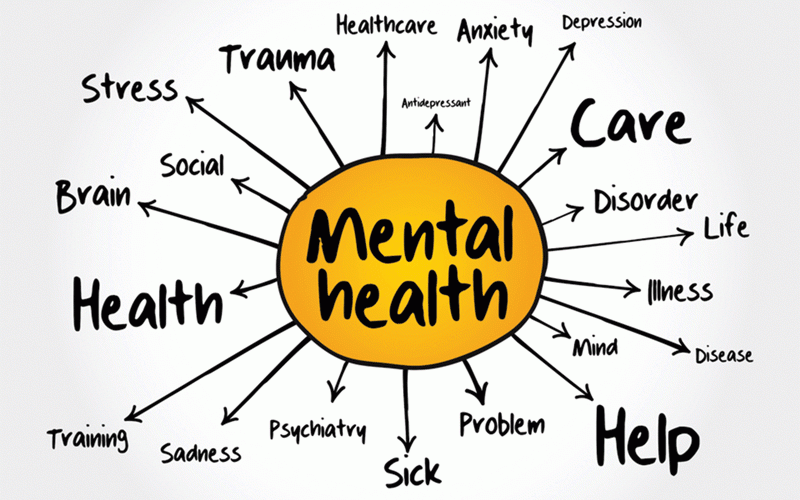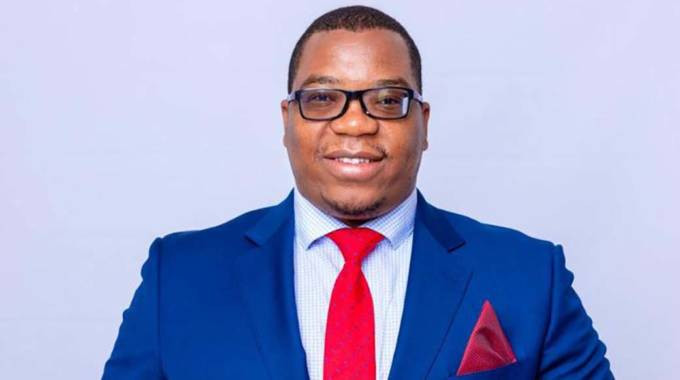
AS Zimbabwe joined the global community in commemorating World Mental Health Day 2025 last Friday on October 10, the spotlight was on a theme both urgent and deeply resonant: “Mental health in humanitarian emergencies”.
This year’s focus underscores the psychological toll of crises, conflict and climate disasters, displacement and the imperative to embed mental health support into emergency response systems.
Chidochashe Makara, Cimas iGo wellness coach, says the theme was chosen to address the impact of emergencies on mental health and how it is imperative to provide psychosocial support for those affected by conflict, natural disasters and other emergencies, as these events significantly disrupt lives and communities, and raise the rates of distress.
In Zimbabwe, the echoes of Cyclone Idai, Covid-19 and ongoing climate shocks have revealed both the fragility and resilience of mental health systems.
“Mental health and psychosocial support have somewhat been integrated into Zimbabwe’s disaster preparedness, case in point, Cyclone Idai. However, full system integration into disaster preparedness plans and healthcare is a work in progress,” Makara said.
She said emergencies often amplify existing vulnerabilities, saying they increase exposure to loss, trauma, displacement and food insecurity, which can all lead to anxiety, depression, post- traumatic stress disorder (PTSD) and substance abuse.
“Vulnerable groups such as children, older people, displaced individuals, women and people with pre-existing conditions are worse off because of disrupted services.” Makara said.
She said the most common mental health conditions triggered by crises include acute stress, anxiety and depression as well as PTSD and increased substance use. She said Zimbabwe’s health infrastructure remains uneven in its capacity to respond.
- Building narratives: Chindiya empowers girls through sports
- Building narratives: Chindiya empowers girls through sports
- Nama successfully hosts second golf day
- Nama successfully hosts second golf day
Keep Reading
“Post-Covid Zimbabwe has become very aware of mental health issues and recognised the gaps. Independent consultants have suggested plans recommending integration of mental health into emergency response,” Makara said.
“However, the system itself has limited resources in the way of mental health practitioners and infrastructure, so the response varies by province.” She noted that barriers to care persist. “In terms of during crises, the biggest barriers remain the same; limited numbers of trained mental health professionals. Stigma as well as logistical costs during a crisis can hinder access to mental health services,” Makara said
To build a more responsive system, she advocated for practical reforms.
“We should prioritise integrating mental health services into national emergency plans as well as training non-specialist providers to serve in crisis situations. Building community response centres will also improve reach of services,” Makara said.
One such scalable intervention is Psychological First Aid (PFA), which Makara described as an immediate support approach where one listens, assesses and comforts then links the individuals to further services.
This is used to reduce distress in the moment and strengthen coping after experiencing trauma.
Makara said non-governmental organisations (NGOs) and other community groups currently offer training for PFA in Zimbabwe through local workshops.
“Community based support from peer groups, lay counsellors and community leaders can preserve social networks and increases detection of those needing care. This in turn facilitates recovery and long-term resilience.
They can be trained in areas such as PFA and basic counselling skills,” she said. Makara also highlighted the relevance of the World Health Organisation (WHO) mhGAP Humanitarian Intervention Guide.
“The mhGAP Humanitarian Intervention Guide (mhGAP-HIG) is an adaptation of WHO’s mhGAP for humanitarian settings to help non-specialist providers assess and manage mental, neurological and substance-use conditions during emergencies,” she said.
“Zimbabwe and its partners reference WHO mhGAP guidance in training and planning; some non-governmental organisations (NGOs) and health programmes have used mhGAP-based training in Zimbabwe.”
Makara also explained that climate change is a growing mental health threat.
“Droughts, floods and environmental degradation increase food insecurity and loss of livelihoods,” she said. “They are all linked to anxiety, depression, stress and suicidal behaviour. Climate-related shocks therefore raise both immediate distress and longer-term mental health burdens.
“Displaced people often face trauma from disaster, separation from social supports, disrupted care for chronic conditions, a sense of loss, substance misuse and barriers to consistent medication or counselling; outcomes that raise rates of depression and PTSD.”
Makara said digital platforms offer new hope for expanding access.
“Digital tools can provide remote counselling, psychoeducation, symptom screening and better referral coordination,” she said.
“Inclusivity must be central to mental health planning. Services must be made culturally appropriate, free or low-cost, available in local languages and delivered in community safe spaces.
“The service provision must also involve community leaders and traditional healers and ensure outreaches are done to raise awareness.
“Schools and workplaces can also play a vital role. They can provide teacher training in PFA and trauma-sensitive approaches as well as run psychosocial support groups and create safe referral pathways.
“Workplaces should put flexible policies, peer-support programs, mental-health briefings, anonymous helplines and links to professional care in place,” Makara urged.
She went on to say traditional healers and community leaders are essential allies, saying they are trusted sources of support and can provide culturally accepted psychosocial care, help reduce stigma and mobilise communities for prevention and assistance, so engaging and training them increases reach and acceptability of mental health support.
“The media, too, has a responsibility. The encouragement to the media remains the same. They should use non-sensational language and avoid explicit descriptions of suicide methods. Including help-seeking information and available services and highlighting recovery stories and resilience also helps.
“It is imperative for the media to consult mental-health experts, and respect the privacy and dignity of affected people. Responsible reporting reduces stigma and encourages help-seeking. “Policy and budgetary commitments are urgently needed. Zimbabwe’s task in reacting to crises from a mental health point of view remains at large. Therefore, there is need for ring-fenced budgets for mental health support in health and emergency plans and funding for workforce training and community services.
“The integration of mental health into primary care and disaster planning and medicines procurement would go a long way as well,” Makara added. On an individual level, she encourages simple protective steps.
Maintaining routines and staying connected to family and neighbours are some ways to safeguard one’s mental health during crises.
Individuals should also limit distressing news and look after basic needs such as sleep, food and movement.
Communities helping each other is a major protective factor.
“Low-cost interventions can be scaled. Group psychosocial support has been quite successful as well as PFA, structured lay-counselling and digital/SMS psycho-education,” Makara said.
“Families are frontline caregivers. They can provide listening without judgment, maintain predictable routines, and monitor for signs of severe distress.
They can also help members access care and encourage open conversation and reduce blaming or stigma. “Finally, myths must be dismantled. Common myths about mental health are that mental illness equals weakness or is purely spiritual. Another one is that mental disorders are untreatable; only specialists can help.
“These myths can be addressed by public education campaigns, community dialogues and also engaging faith and traditional leaders.
“At Cimas, we stand with every Zimbabwean affected by disaster and crisis. Mental health is health and help should be close, kind and timely.
“We call for stronger community support and open conversation, so no one suffers in silence. If you or someone you know is struggling, reach out. Small steps and caring people make recovery possible. Together, we will build a more resilient Zimbabwe,” Makara added.
The information in this article is provided as a public service by the Cimas iGo Wellness programme, which is designed to promote good health. It is provided for general information only and should not be construed as medical advice. Readers should consult their doctor or clinic on any matter related to their health or the treatment of any health problem. — [email protected]/ WhatsApp: 0772 161 829/ phone 024-2773 0663.











